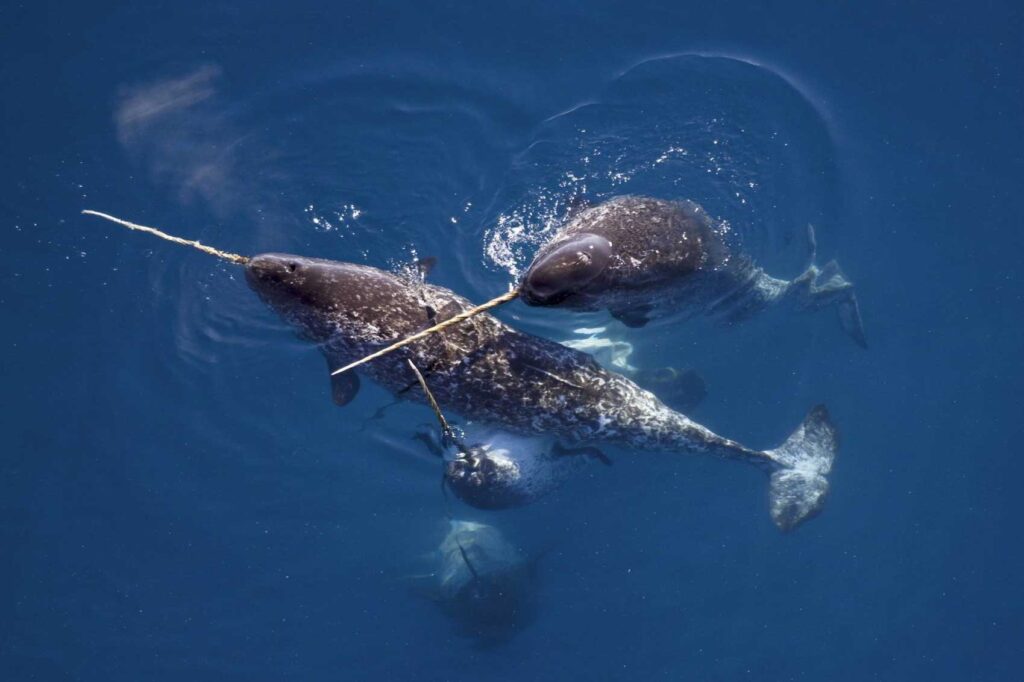The second attempt to keep narwhals in captivity was made in 1970 by the Vancouver Aquarium in Canada. The ambitious director of the aquarium, Murray Newman, thought that bringing narwhals to the city could draw people’s attention to the rare species and help protect them.
In 1968, Newman and a team of sailors, guided by indigenous people, ventured into the waters around Baffin Island, but their two-week search for narwhals was fruitless. Newman returned to the area again in 1970 and after three weeks of searching was still unsuccessful. They eventually bought a young male narwhal from local hunters and named him Kila Lugok.
Within a week of the narwhal’s arrival at the Vancouver Aquarium in August 1970, the center managed to capture two female narwhals and three other young narwhals and placed them with Keela Lugog.
While the success of bringing narwhals to the aquarium was initially praised by the public and the media, things quickly changed. In less than a month in September 1970, three young narwhals died. Two females also died in November. Public outrage was sparked, and the mayor of Vancouver demanded that Kyla Lugok be returned to the wild, but Newman refused. Finally, on December 26, Kila Lugok also died.
It is not clear why narwhals do not survive in captivity. Their close relatives, beluga whales, live in aquariums without problems.
Narwhals are very sensitive animals. Their tusks are filled with 10 million nerve endings that help detect subtle changes in temperature, pressure, particle concentration, and more. This species is also very sensitive to human noise and even the passage of a ship disturbs them.
It is unlikely that the world will ever see another attempt to keep narwhals in aquariums. In recent years, many revelations have been made about the problems of marine mammals in captivity, and with the increase of people’s awareness in this field, the desire to watch whales in captivity has decreased.



